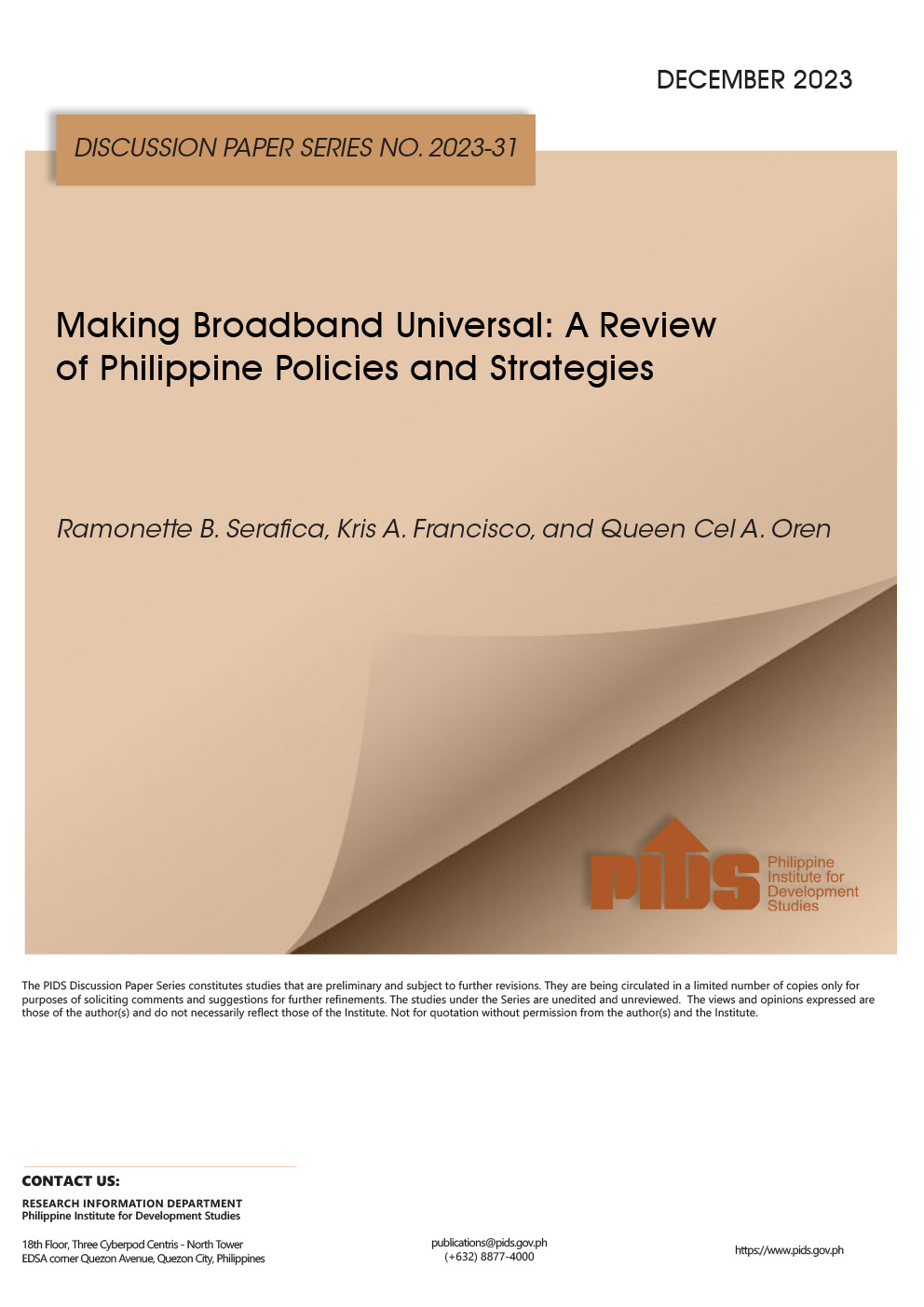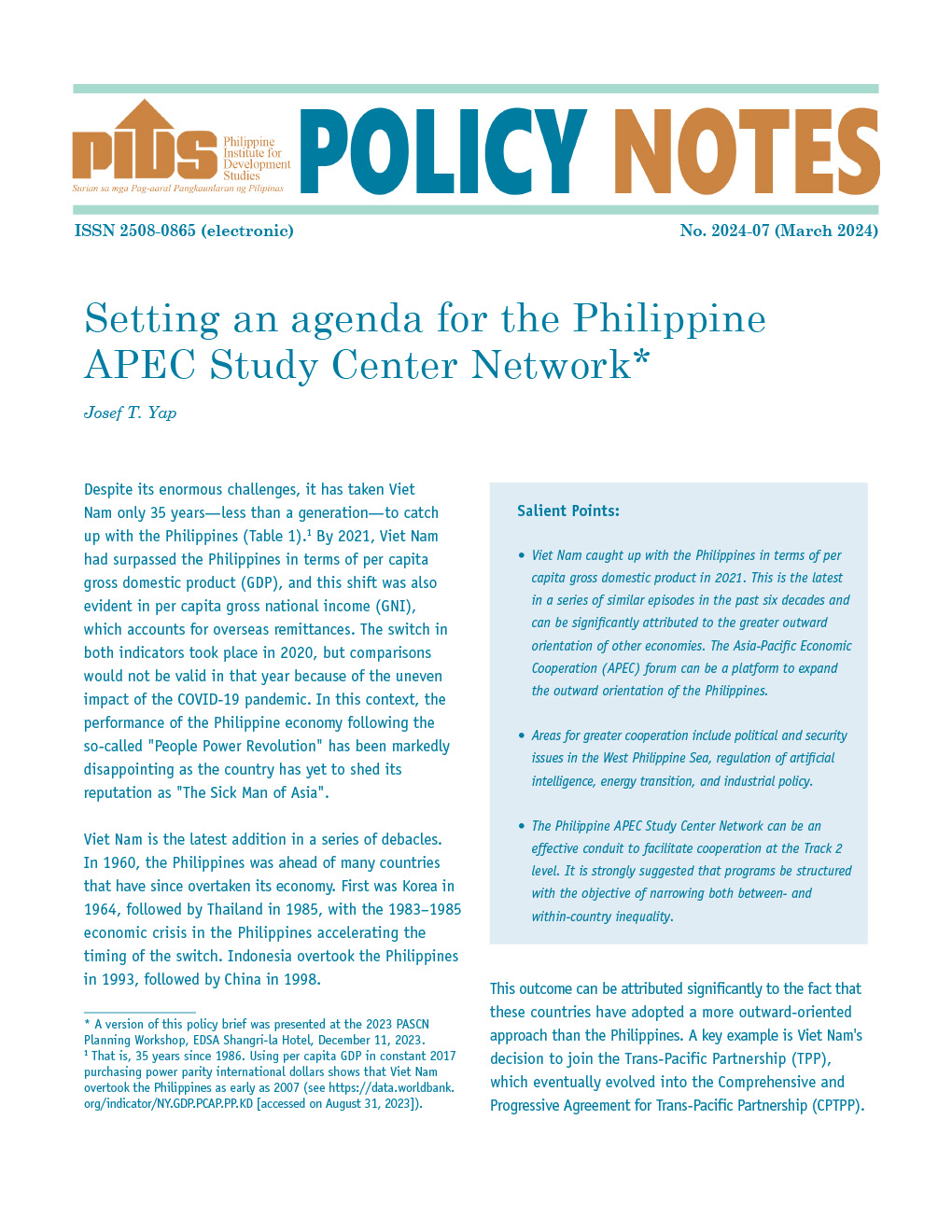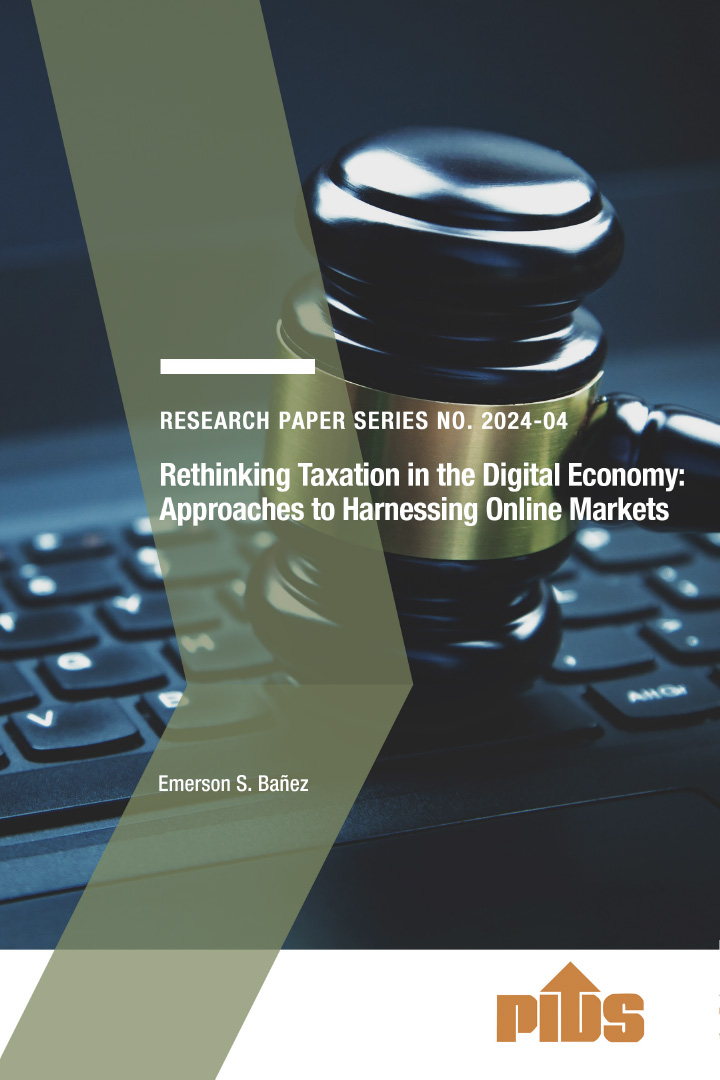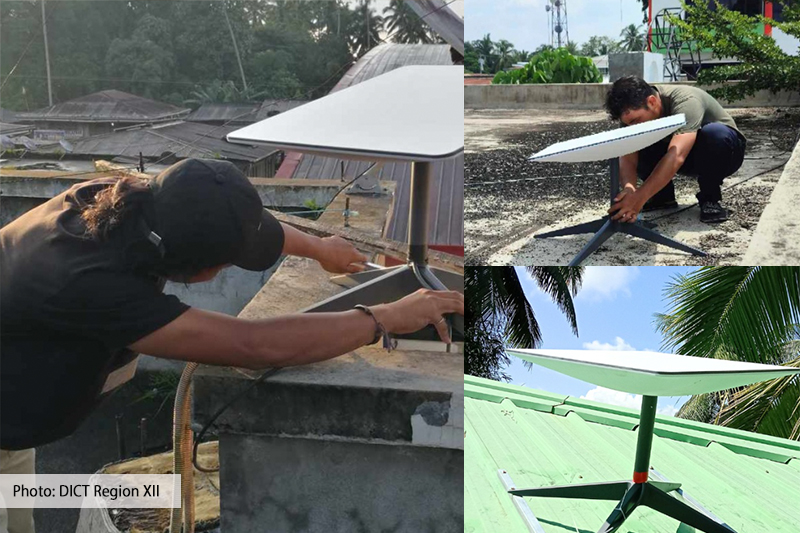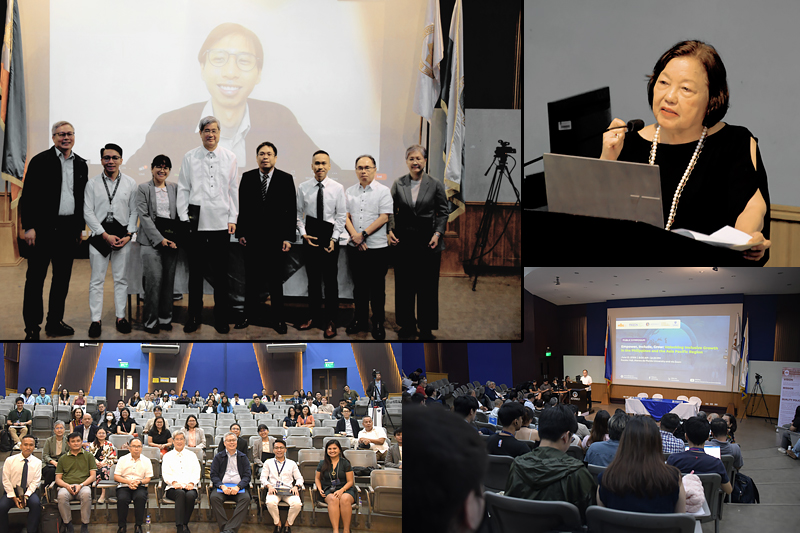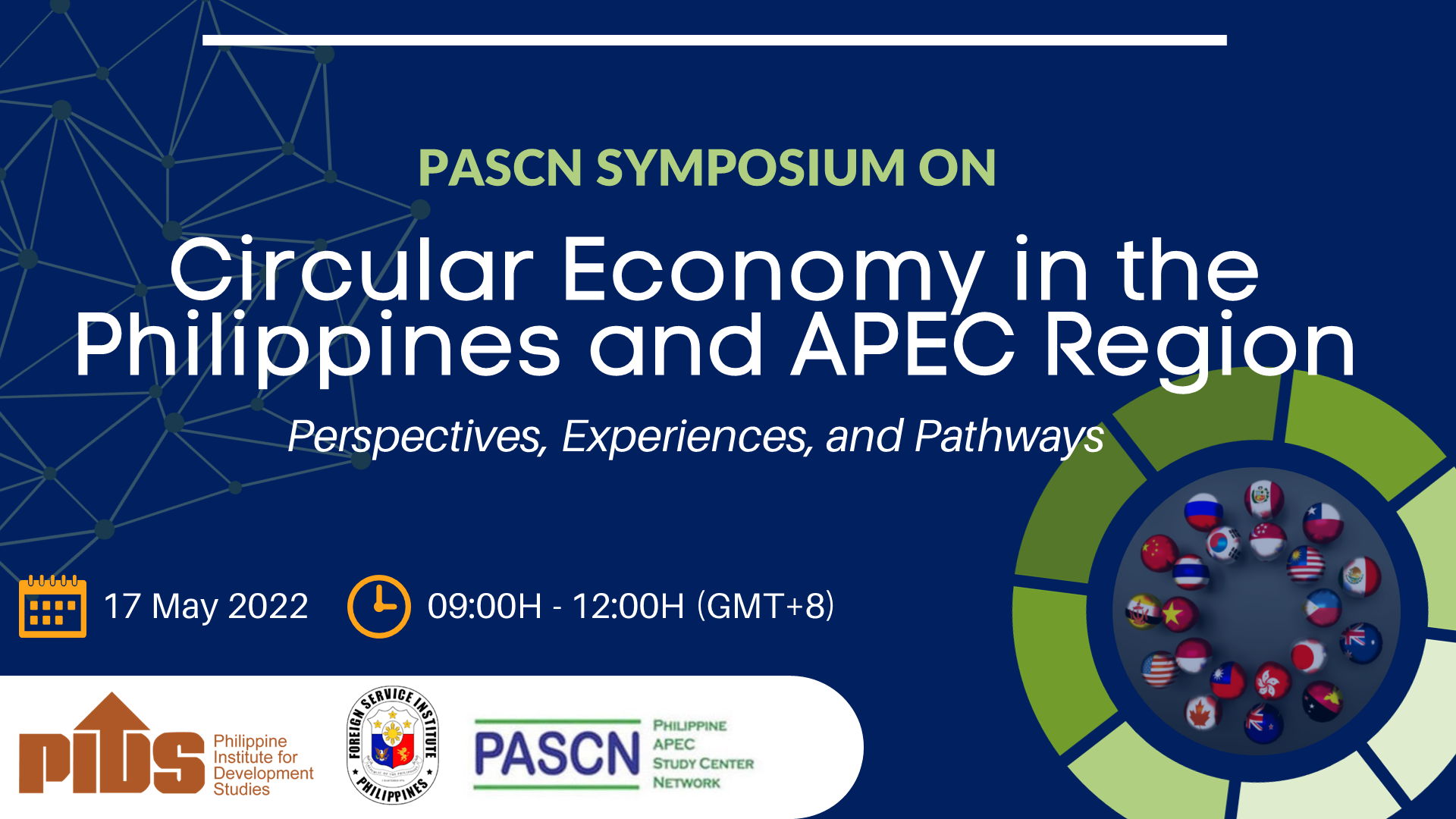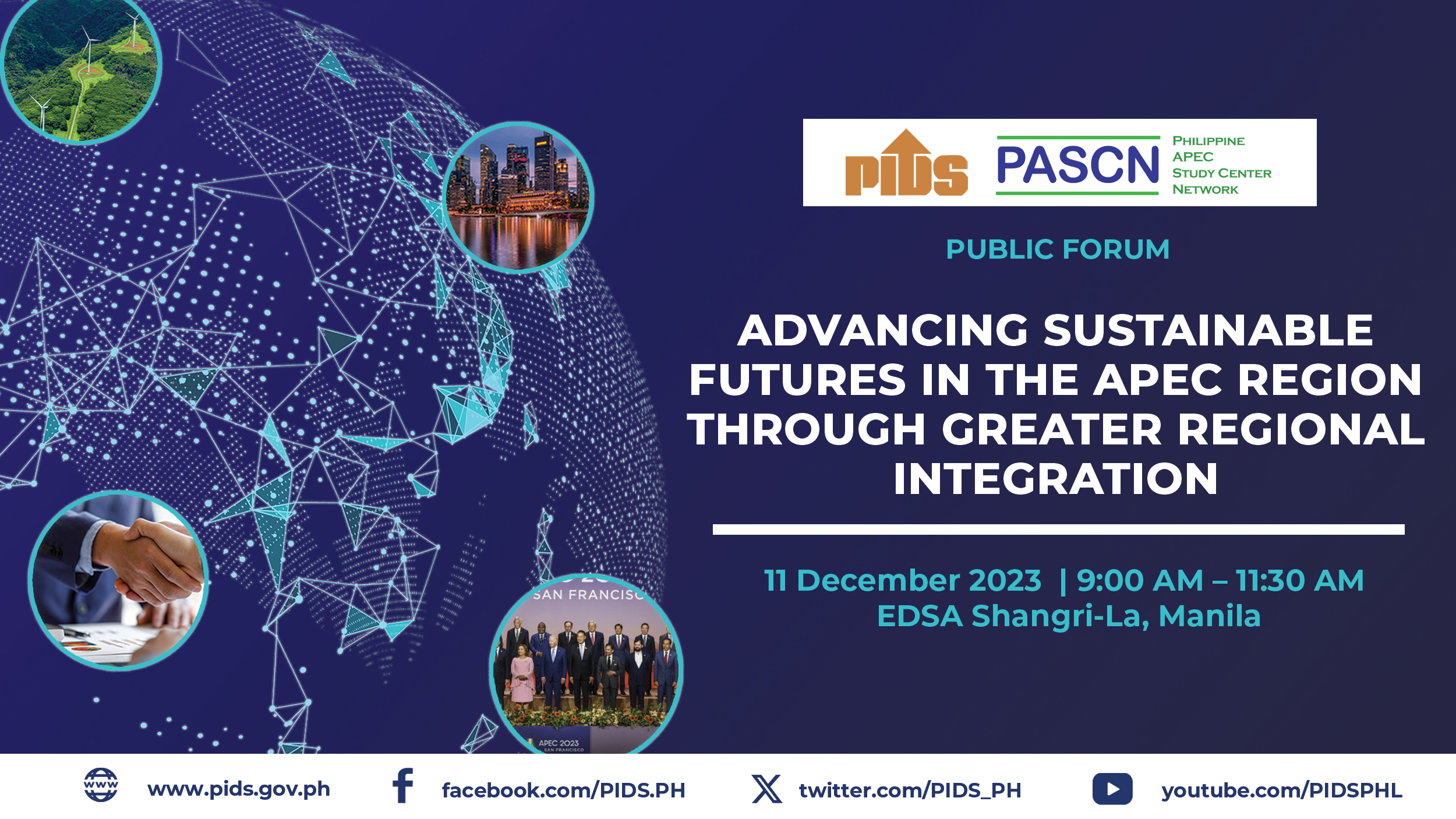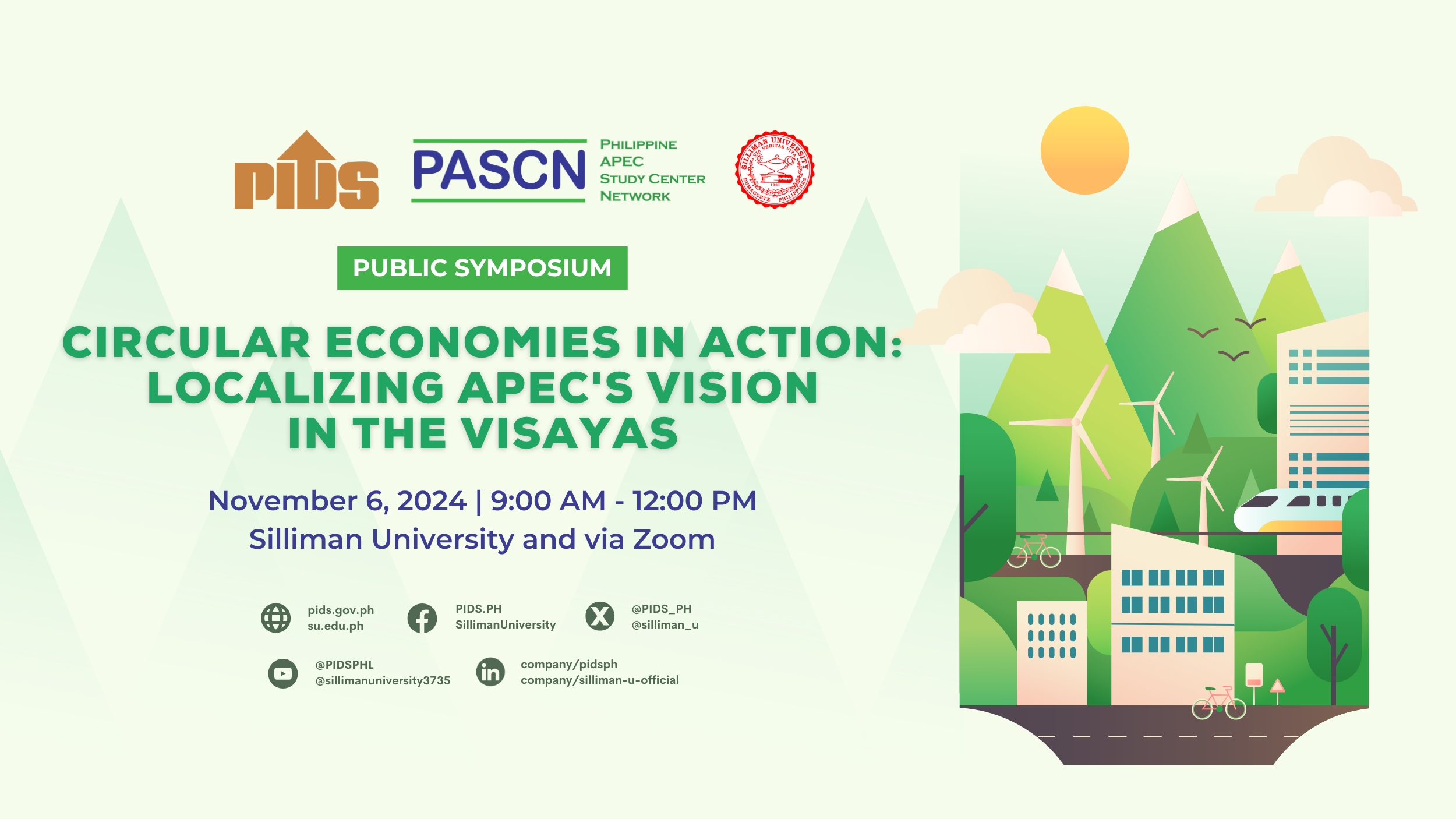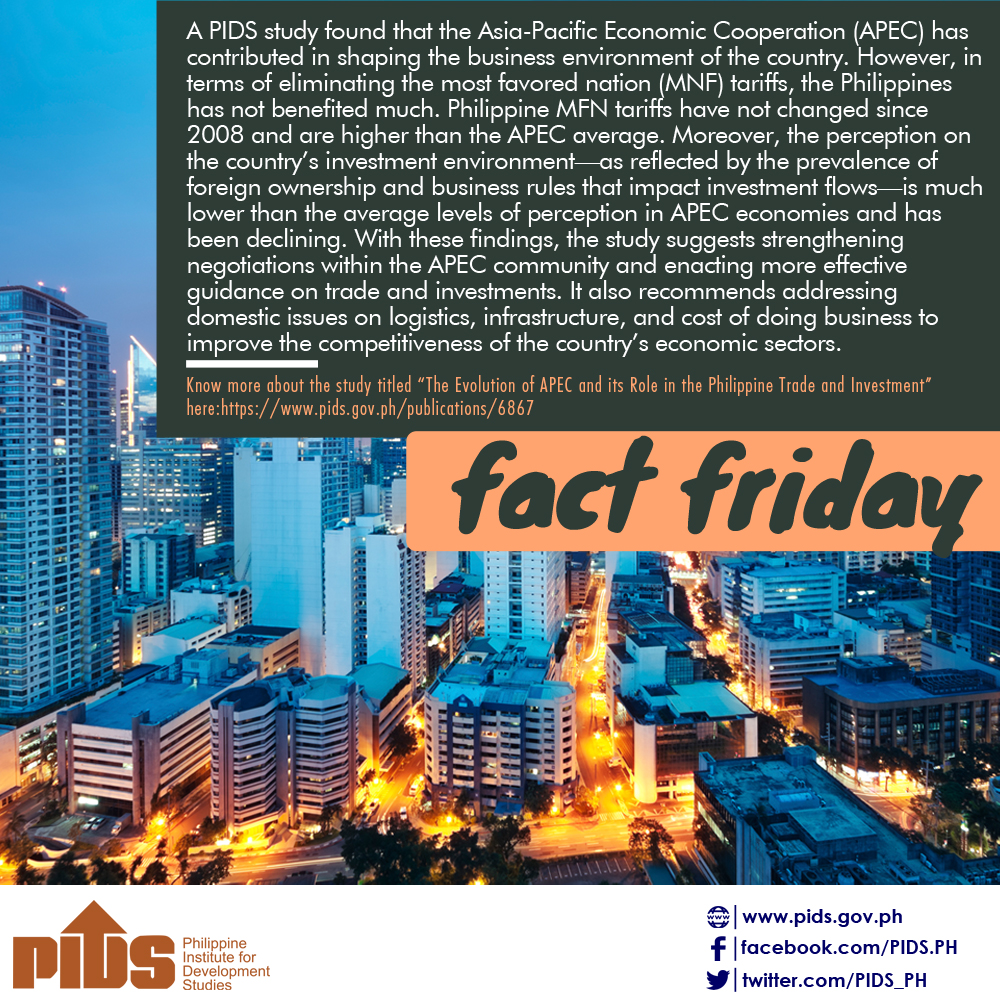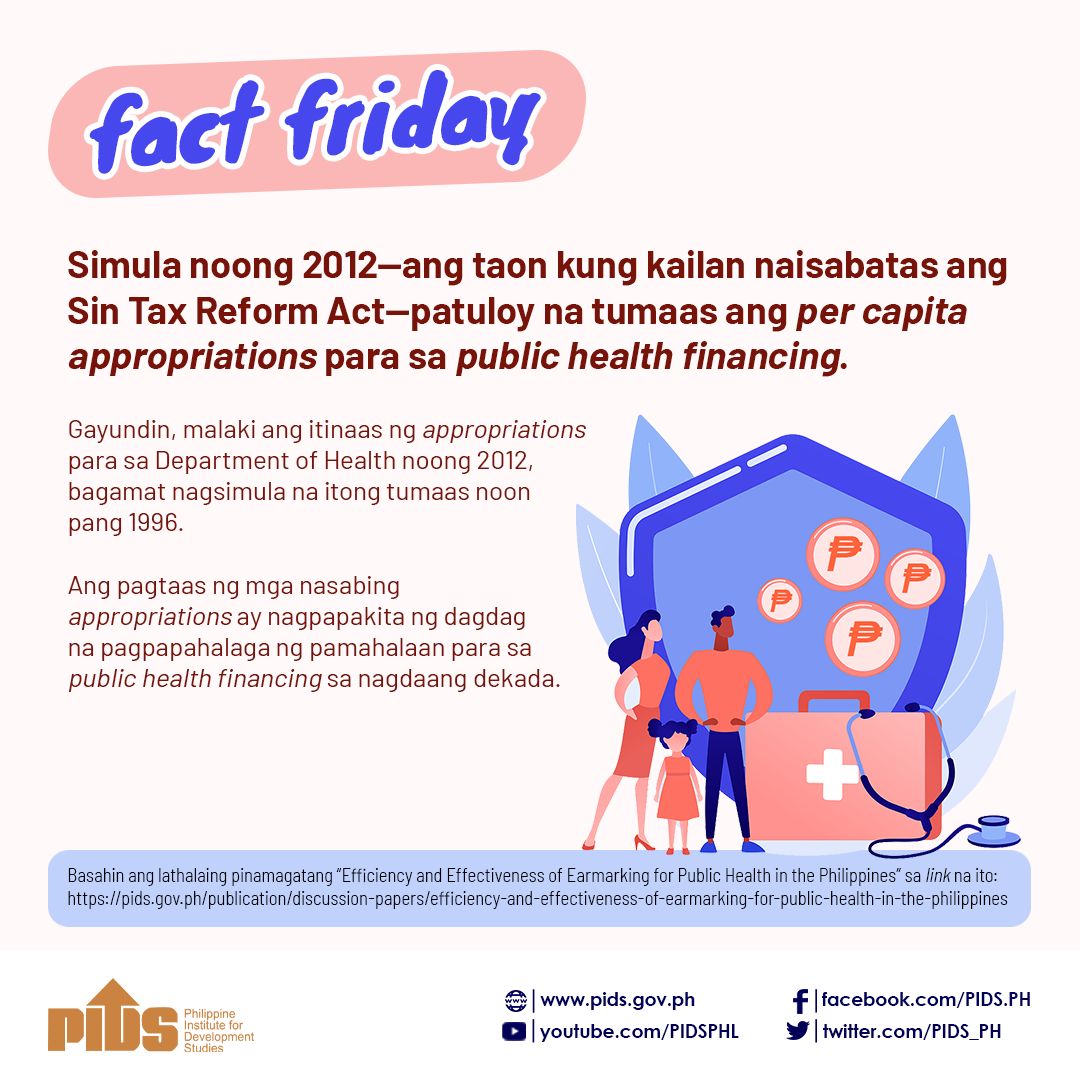The Philippine APEC Study Center has tackled the issue of tax policies and its impact on improving a country’s business environment.
This developed as government-run Philippine Institute for Development Studies (PIDS) noted that while the Philippine ranking in the World Bank’s "Ease of Doing Business” 2015 report took the second highest leap to 95th, issues of infrastructure, and especially tax reforms are concerns the country has to prioritize to improve future rankings.
The government-run Philippine Institute for Development (PIDS) said at 95th slot, it is still way behind Malaysia at 18th place, Thailand at 26th and Vietnam at no. 78.
The PIDS, reviewing the latest World Bank rankings as part of the Philippine APEC Study Center Network for the Asia-Pacific Economic Summit 2015, cited the report’s focus on scrutinizing each countries’ property rights, enforcement of contracts, and what it called "collective actions.”
PIDS further noted that APEC has also been prioritizing investor protection and a "strong tax system.”
PIDS honed it on what the World Bank had to say about the rankings in terms of tax policies and its impact on improving a country’s business environment.
"(The report’s) authors underline that when it comes to tax rates and systems, the administration of tax is ‘equally, if not more, important’, particularly when it comes to making it easier and simplified for people to comply with tax laws,” PIDS noted.
On the issue of property rights and how these are protected, PIDS said this is more a policy to hook foreign investments and to make them stay.
"This does send a strong message to investors, that an economy has capable institutions that can take care of their investments. Investor protection mechanisms enable a good business environment, thereby encouraging more investments.”
"Another vital institution crucial to doing business is infrastructure,” the policy note added. "One study points that infrastructure and regulatory reforms are the main improvements that developing countries can focus on. Others go as far to say that building strong infrastructure and regulatory institutions is more important for developing countries than focusing too much on tariffs.”
PIDS said APEC’s objective in promoting ease of doing business is to market the region as location for "cheaper, faster and easier” and this can only be accomplished by pushing for regulatory reform.
"The priority areas identified when the framework was launched in Singapore in 2009 include starting a business, getting credit, enforcing contracts, trading across borders, and dealing with permits,” it said.
"So far, progress has been uneven,” said PIDS. For one, acquiring construction permits and getting credit are actually more problematic than putting up a business.
"Many of the challenges encountered were political cycles, leadership commitment, communication with constituencies and stakeholders, inter-institutional coordination, and commitment to reforms, among many others,” said PIDS.
PIDS said the World Bank has a new method of measuring performance by using Distance to Frontier (DTF). Basically, it measures performance between an economy’s current standing on a particular criteria and the best performance for that criteria. "Examined by these measurements, the Philippines once again is second to Russia in terms of improved ranking, while performance for the rest of the APEC nations overall remains mixed.”(LCC)
Under this DTF measure, PIDS highlighted the effective practices that would encourage a good business environment and these have been in fact approved by APEC. These are streamlining and simplification of procedures, creation of an electronic platform to make trade easier, and implementation of a single interface for transactions.//

